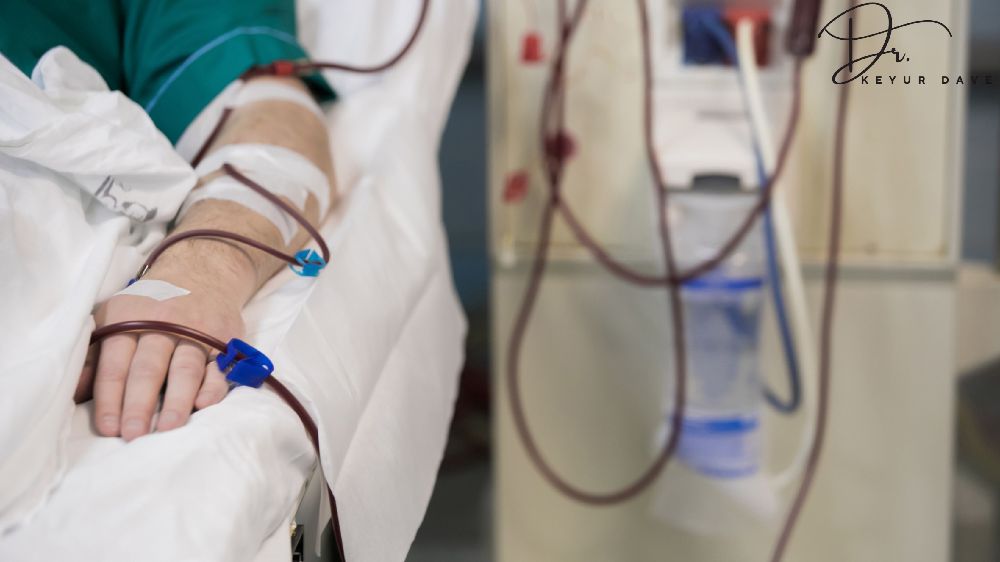
Beginning dialysis treatment can bring a mix of emotions—from uncertainty and anxiety to curiosity. Whether your doctor just told you dialysis is necessary or you’re preparing for your first session, it’s helpful to know what lies ahead.
In this guide, we’ll address frequently asked questions by patients who are new to dialysis, so you feel prepared and supported during the transition.
1. Why Do I Need Dialysis?
Dialysis is needed when your kidneys can no longer remove waste, fluid, or toxins from your bloodstream effectively. This typically happens when you reach advanced kidney failure or end-stage renal disease. Dialysis performs these essential functions to keep your body in balance.
2. What Are the Two Main Dialysis Methods?
You have two primary treatment options:
-
Hemodialysis: Blood is cleaned using a machine, usually at a clinic or sometimes at home.
-
Peritoneal Dialysis: A cleansing fluid is passed through your abdomen using a catheter, with your abdominal lining acting as a natural filter.
Your nephrologist will recommend the best type based on your health, lifestyle, and preferences.
3. How Often Do I Have to Do Dialysis?
With hemodialysis, most people undergo treatment three times a week, with each session lasting 3–5 hours.
Peritoneal dialysis, on the other hand, is generally done daily, either during the day or overnight, depending on the method.
4. Is the Procedure Painful?
The process itself is not painful, but inserting needles for hemodialysis can cause mild discomfort. You might also feel fatigue, chills, or cramping at times—but these symptoms often lessen as you adjust to the routine.
5. Will I Have to Change My Diet?
Yes, but with guidance. A kidney-friendly diet usually involves:
-
Controlling sodium, potassium, and phosphorus levels
-
Managing your fluid intake
-
Eating the right amount of protein
A renal dietitian will help tailor your diet to support your health and energy levels.
6. Can I Travel While Receiving Dialysis?
Absolutely. Traveling is possible with some preparation. If you're on hemodialysis, you can schedule treatments at a dialysis center near your travel destination.
Those doing peritoneal dialysis often bring supplies with them and perform treatment on the go—with support from their care team.
7. Can I Continue My Job or Education?
Yes, many dialysis patients lead full, active lives. Treatment schedules can often be arranged to fit around work or school hours. Home dialysis and evening sessions provide even more flexibility.
8. Will I Need Dialysis Forever?
It depends. Some people remain on dialysis long-term, while others may qualify for a kidney transplant, which can replace the need for ongoing dialysis. Others may only need it for a short period while recovering from temporary kidney problems.
9. What Should I Bring to a Dialysis Appointment?
To stay comfortable during longer sessions, bring:
-
A small pillow or cozy blanket
-
Entertainment (music, books, tablet)
-
Light snacks, if allowed
-
Medical records or a medication list
Ask your center what items are permitted before your session.
10. How Can I Emotionally Adjust to Dialysis?
Feeling overwhelmed at first is completely normal. Seek support from:
-
Your dialysis team (nurses, social workers, counselors)
-
Family and friends
-
Dialysis support groups (online or in-person)
Remember, you’re not alone—and many patients find comfort in connecting with others who understand their journey.
🧠 In Summary
Starting dialysis is a big life change, but knowing what to expect can help ease the process. With time, most patients adjust and find a routine that works. Staying informed, asking questions, and leaning on your care team can help you navigate dialysis with confidence.

.png)
